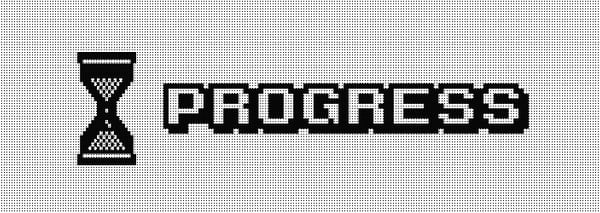
The update to the ACT Writing test has many students confused about how best to prepare. With so much more information to read before you start writing, the ACT essay's got to be more complicated right? Nope, not necessarily. Join me as I journey deep into the land of ACT essay prompts.
feature image credit: The President of the Academy by indiamos, used under CC BY 2.0.
What Does An ACT Writing Prompt Look Like, Anyway?
Here's the prompt I'll be discussing and dissecting in this article:
Public Health and Individual Freedom
Most people want to be healthy, and most people want as much freedom as possible to do the things they want. Unfortunately, these two desires sometimes conflict. For example, smoking is prohibited from most public places, which restricts the freedom of some individuals for the sake of the health of others. Likewise, car emissions are regulated in many areas in order to reduce pollution and its health risks to others, which in turn restricts some people's freedom to drive the vehicles they want. In a society that values both health and freedom, how do we best balance the two? How should we think about conflicts between public health and individual freedom?
Read and carefully consider these perspectives. Each suggests a particular way of thinking about the conflict between public health and individual freedom.
Perspective One: Our society should strive to achieve the greatest good for the greatest number of people. When the freedom of the individual interferes with that principle, freedom must be restricted.
Perspective Two: Nothing in society is more valuable than freedom. Perhaps physical health is sometimes improved by restricting freedom, but the cost to the health of our free society is far too great to justify it.
Perspective Three: The right to avoid health risks is a freedom, too. When we allow individual behavior to endanger others, we've damaged both freedom and health.
Write a unified, coherent essay about the conflict between public health and individual freedom. In your essay, be sure to:
- clearly state your own perspective on the issue and analyze the relationship between your perspective and at least one other perspective
- develop and support your ideas with reasoning and examples
- organize your ideas clearly and logically
- communicate your ideas effectively in standard written English
Your perspective may be in full agreement with any of the others, in partial agreement, or wholly different.
What ACT Wants to See in Your Essay: A Short Summary
Before we dive deep into the depths of ACT Writing prompts, I wanted to quickly mention four key things that you need to do in your essay in order to score above average. These four points are taken from both ACT prompt instructions (as above) and the ACT Writing rubric.
To score at least a 6/12, your essay must...
- Pick a point of view. If you don't have a clear thesis that states what your opinion on the issue is, then it will be difficult to get above a 2 in the Ideas & Analysis and Development & Support domains (for more information on these, go to our article explaining the ACT Writing rubric).
- Discuss at least two perspectives. Again, if you fail to analyze the relationship between your perspective and at least one other, it will be very difficult to get above a 2 in the Ideas & Analysis and Development & Support domains.
- Be organized clearly and logically. If you jump back and forth between ideas without transitions or a logical structure, it will be impossible for you to get above a 2 in the Organization domain on your essay.
- Be written in standard written English. Some grammatical errors are okay, but the more problems there are, the lower your score in the Language Use domain.
For more information like this, read our 15 tips and strategies to use on the ACT essay.
Why Are ACT Writing Prompts Written This Way?
Now you know what an ACT Writing Prompt looks like, and what the ACT is looking for in your essay. Next question: why are ACT Writing prompts worded the way they are?
There are few answers to this question, all of which have to do with why ACT, Inc. changed the essay in the first place. The new ACT Writing Test aligns more closely with the Common Core Writing Standards, which are designed as benchmarks that indicate students are ready for college.
Hypothetically, by preparing for the ACT Writing Test, students will also be preparing for college and the type of writing they'll have to do there. Finally, the new ACT essay is designed to get more information about where students are and what areas they're weak in. If, for instance, a student can analyze and support an argument about an issue, but has difficulty organizing his ideas and using proper grammar, the ACT Writing Test will identify these issues and provide feedback.
More important than ACT, Inc.'s motivations for changing the Writing Test, however, are the effects the new ACT essay prompts will have on you. Are the new ACT Writing prompts harder than the old ones?
Not exactly. The way ACT Writing frames the essay prompts does a lot of the work for you. Previously, the rubric rewarded students who placed the prompt issue in a broader context, but didn't really provide any guidelines for how to go about doing this. Now, to some extent, the prompt does provide you with a broader context in which to set your argument.
A second major change is the inclusion of three different perspectives. ACT Writing always provided two points of view for students to consider, but didn't necessarily make it clear that you needed to address a view opposing yours and provide multiple points to back up your point of view. Now, by telling you that you have to analyze the relationship between your perspective and at least one other perspective, ACT, Inc. is being clearer about its expectations.
Additionally, each perspective provides not only a point of view, but the beginning of some reasoning to back it up. Rather than struggling to come up with a reason someone would agree with a perspective that you think is completely unreasonable, you now will at least have a starting point for explaining why a perspective might be true to some extent.
ACT Writing Prompts: Patterns To Prepare For

The next step is to go into the patterns of topics and perspectives that comprise the ACT Writing prompt.
ACT Writing Prompt Topics, Dissected
Here's an example of a topic paragraph and title of an essay prompt from an official ACT practice test:
Public Health and Individual Freedom
Most people want to be healthy, and most people want as much freedom as possible to do the things they want. Unfortunately, these two desires sometimes conflict. For example, smoking is prohibited from most public places, which restricts the freedom of some individuals for the sake of the health of others. Likewise, car emissions are regulated in many areas in order to reduce pollution and its health risks to others, which in turn restricts some people's freedom to drive the vehicles they want. In a society that values both health and freedom, how do we best balance the two? How should we think about conflicts between public health and individual freedom?
In addition to providing introductory material about the topic, this paragraph includes possible examples that can be used in your essay. Even if you didn't know about the topic before the test, there are enough possible starting points there that a lack of knowledge shouldn't negatively affect you too much.
So what's the pattern behind each ACT Writing topic paragraph? The basic topic is always something along the lines of "How humans are changing the world," or "The way the world is changing." You're then told about a conflict that has arisen as a result of the change and asked to discuss it.
Take the "Public Health and Individual Freedom" prompt. The title gives you the general topic area. Next, the first two sentences lay out the basis of the conflict described in this prompt. In this case, the conflict is between being healthy and being allowed to do whatever you want.
Most people want to be healthy, and most people want as much freedom as possible to do the things they want. Unfortunately, these two desires sometimes conflict.
The paragraph will go on to provide multiple examples of the prompt in action in the world today. These are all possible examples that you can use in your essay to support your discussion of multiple perspectives (more on that later).
For example, smoking is prohibited from most public places, which restricts the freedom of some individuals for the sake of the health of others. Likewise, car emissions are regulated in many areas in order to reduce pollution and its health risks to others, which in turn restricts some people's freedom to drive the vehicles they want.
The prompt will usually end with an explicit statement of the conflict—in this case, how can a balance be struck between individual freedom and right to health? You'll be asked to discuss how humans are changing the world (in this case, society and its rules, rather than the physical world).
In a society that values both health and freedom, how do we best balance the two? How should we think about conflicts between public health and individual freedom?
Finally, you are charged with examining multiple perspectives on the issue, which is restated (the conflict between public health and individual freedom).
Write a unified, coherent essay about the conflict between public health and individual freedom.

Some see the glass as half-full. Some see it as half-empty. Some see it and say "Meowrgle" (that's the sound of a cat meowing into a glass of water).
ACT Writing Prompt Perspectives, Dissected
There are three basic views that underlie the three perspectives you're given in the ACT essay prompt. I've titled them based on three different philosophical stances so that they're easier to refer to (rather than calling them A, B, and C).
#1: Conservatism
Perspectives that fall into this category are not conservative in a political sense. Instead, these perspectives claim that change is not good or positive, or that things are better the way they are (or were).
Here are two examples of what this looks like in action:
Perspective on "Intelligent Machines": What we lose with the replacement of people by machines is some part of our own humanity. Even our mundane daily encounters no longer require from us basic courtesy, respect, and tolerance for other people.
Perspective on "Public Health and Individual Freedom": Nothing in society is more valuable than freedom. Perhaps physical health is sometimes improved by restricting freedom, but the cost to the health of our free society is far too great to justify it.
#2: Utilitarianism
This perspective takes a practical view of whatever issue is presented in the topic paragraph. It will always be in favor of the most efficient choice that provides the most benefits for as many people as possible.
Here are two examples of utilitarian perspectives:Perspective on "Intelligent Machines": Machines are good at low-skill, repetitive jobs, and at high-speed, extremely precise jobs. In both cases they work better than humans. This efficiency leads to a more prosperous and progressive world for everyone.
Perspective on "Public Health and Individual Freedom": Our society should strive to achieve the greatest good for the greatest number of people. When the freedom of the individual interferes with that principle, freedom must be restricted.
#3: Progressivism
The last perspective is one that is in favor of progress (hence, "progressivism"). It takes the view that the change in the world caused as a result of the issue or conflict is positive.
Both of these perspectives from official ACT prompts fit into the "progressivism" category:
Perspective on "Intelligent Machines": Intelligent machines challenge our long-standing ideas about what humans are or can be. This is good because it pushes both humans and machines toward new, unimagined possibilities.
Perspective on "Public Health and Individual Freedom": The right to avoid health risks is a freedom, too. When we allow individual behavior to endanger others, we've damaged both freedom and health.

How Can I Use This Info In My Essay?
#1: Prepare Evidence Ahead of Time
Because you know you'll be asked about ways in which the world is changing, it's possible to come up with examples to use on the test ahead of time. Where should you look for examples?
- Current events. Pay attention to what's happening in the news and the world today.
- History. If you're going to be writing about how the world has changed, it helps to know what was true in the past.
- Think about the ways things have changed in your personal life as you've grown up. For instance, in my lifetime, I've seen the change from cassette tapes to CDs to MP3s to streaming music. What are big shifts that you've seen occur? Maybe it's the change from regular cellphones to smartphones, or the election of the first black President of the United States. Make sure that you're able not just to identify the changes, but to discuss what changed before and after these shifts.
- Since the ACT cannot fact-check you on your own experiences, you can also, as always, make up examples from your own life to support your point. Some students find this option intimidating because it requires being able to quickly think of an example that logically supports a point. If the thought of doing this on the ACT makes you nervous, you should try it out on a practice test first; if it doesn't go well, then you'll know to stick to current, historical, and personal events as examples in your essay.
#3: Plan Your Organizational Strategy
Since you have to cover multiple perspectives on the ACT essay, making sure your essay is organized is more important than ever. But how can you practice being organized on your essay?
Using the three core perspectives (conservatism, utilitarianism, and progressivism), figure out what the easiest and most logical way to organize your essay is for you. You might decide that you'll always take the conservative point of view and combine the utilitarian and progressive points of view into one contrasting paragraph. Take a look at my step-by-step construction of a top scoring ACT Writing essay for another possible organizational strategy.
#4: Try to Construct Your Own ACT Writing Prompts
If you really want to get good at answering the ACT essay prompts, try making up your own prompts that adhere to the guidelines I've laid out in this article. Thinking up your own ACT essay prompt will force you to come up with the three perspectives on your own and become even more familiar with the way the prompts are constructed.
As a bonus, you can then write practice essays in response to these prompts. See if you can get a bunch of friends to do this and swap prompts for practice…and FUN!

What's Next?
Now that you understand the central ACT essay question and the three core perspectives, you probably want more prompts to practice with, right? These six ACT Writing prompts are a great place to start!
Delve into the steps you need to take to get a perfect 12 on your ACT essay.
What's important in your ACT essay…and what's not? Find out what will have the greatest impact on your essay score with this full analysis of the ACT Writing grading rubric!











